Chronicles of Civilization’s Twilight in The Time Machine
"The Time Machine" (1960), directed by George Pal, is a nostalgic classic that explores humanity's future. Rating: 7.5/10.
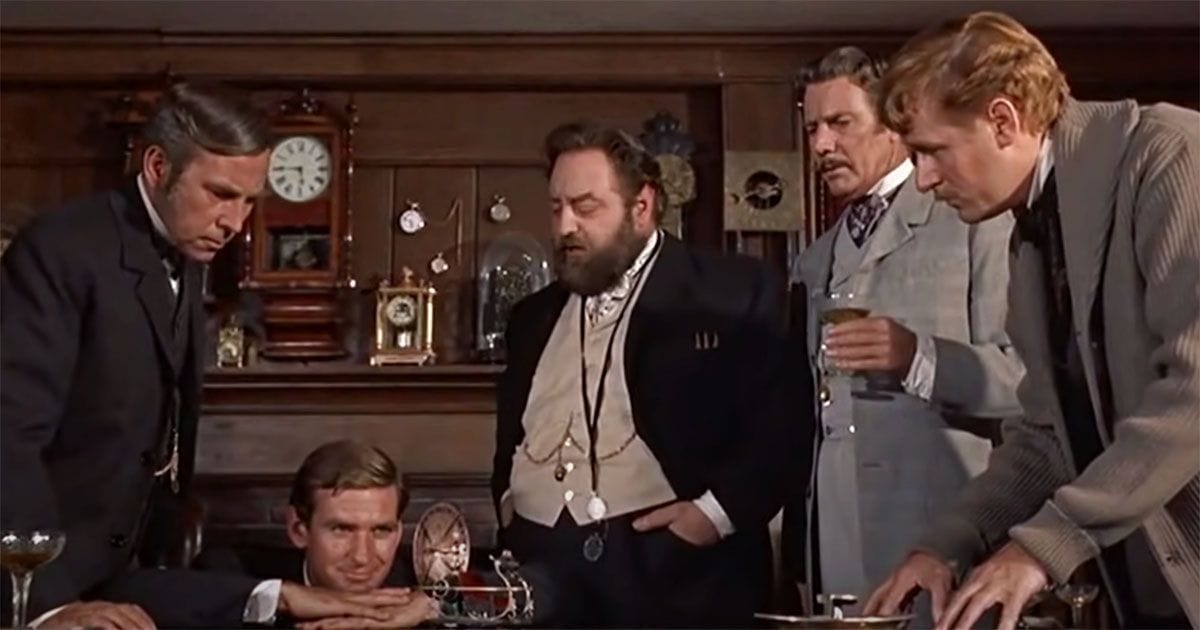
"The Time Machine," released in 1960 and directed by George Pal, stands as a pioneering work in science fiction cinema. Based on H.G. Wells' iconic novella, the film presents a compelling narrative about a disillusioned inventor, George (Rod Taylor), who constructs a time machine to explore humanity's future.
Scenarist David Duncan effectively modernizes Wells' story, embedding contemporary reflections on war and social division amidst a lush visual aesthetic. The supporting cast includes Yvette Mimieux as the enchanting Weena and Alan Young as George's steadfast friend, David Filby.
While the film excels in bringing the fantastical elements of time travel to the screen, it also grapples with deeper themes of societal decline and human nature's propensity for self-destruction.
The duality of the Eloi and Morlocks serves as a cautionary tale about class disparities and ignorance. However, despite its innovative special effects, the film suffers from a somewhat uneven pacing that hampers engagement during its exploration of the Eloi society. Ultimately, "The Time Machine" weaves a narrative that reflects on the consequences of war and the fragility of civilization, urging viewers to reconsider their place in the continuum of time.
| Attribute | Details |
|---|---|
| Title | The Time Machine |
| Director | George Pal |
| Writer | David Duncan, H.G. Wells |
| Actors or actresses | Rod Taylor, Alan Young, Yvette Mimieux |
| Rated | G |
| Runtime | 103 min |
| U.S. Release Date | 25 Aug 1960 |
| Quality Score | 7.5/10 |
Synopsis
In the narrative arc of "The Time Machine," George embarks on his journey by using an intricate contraption that allows him to traverse the fabric of time.
Initially motivated by a desire to prove that time can be manipulated, he travels to the distant year of 802,701 AD, where he encounters a society that appears peaceful yet superficial.
The Eloi, with their idyllic lifestyle, are blissfully ignorant of the dangers lurking below. Here, George discovers the Morlocks, a subterranean race that preys upon the Eloi, creating a stark contrast between the two groups.
As George attempts to reconcile the apparent harmony of this future with the underlying terror, he quickly realizes the dire implications of societal regression and technological neglect.
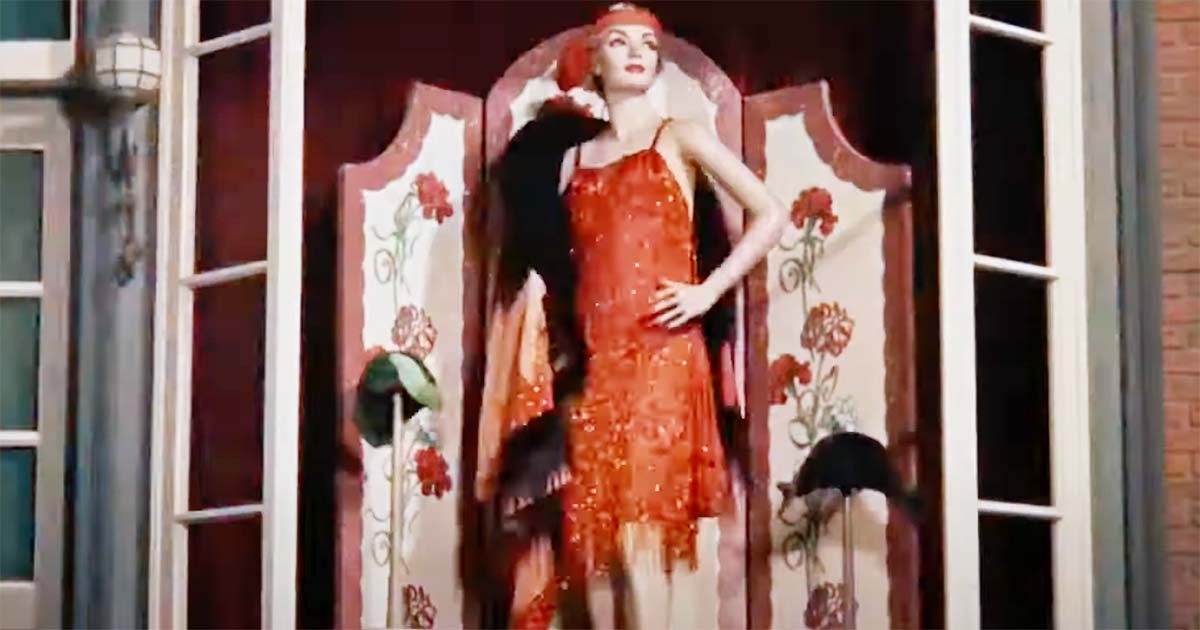
His efforts to bridge the chasm between these two factions illustrate the physical struggle, an intellectual, and moral confrontation with the consequences of human choices. Pressing deeper into this future world, he confronts moral questions surrounding progress and the inherent dangers of civilization's complacency.
As the film builds toward its climax, George's desperation to save Weena and the Eloi leads him to make harrowing decisions, ultimately culminating in a confrontation with the Morlocks that encapsulates the struggle of hope against despair.
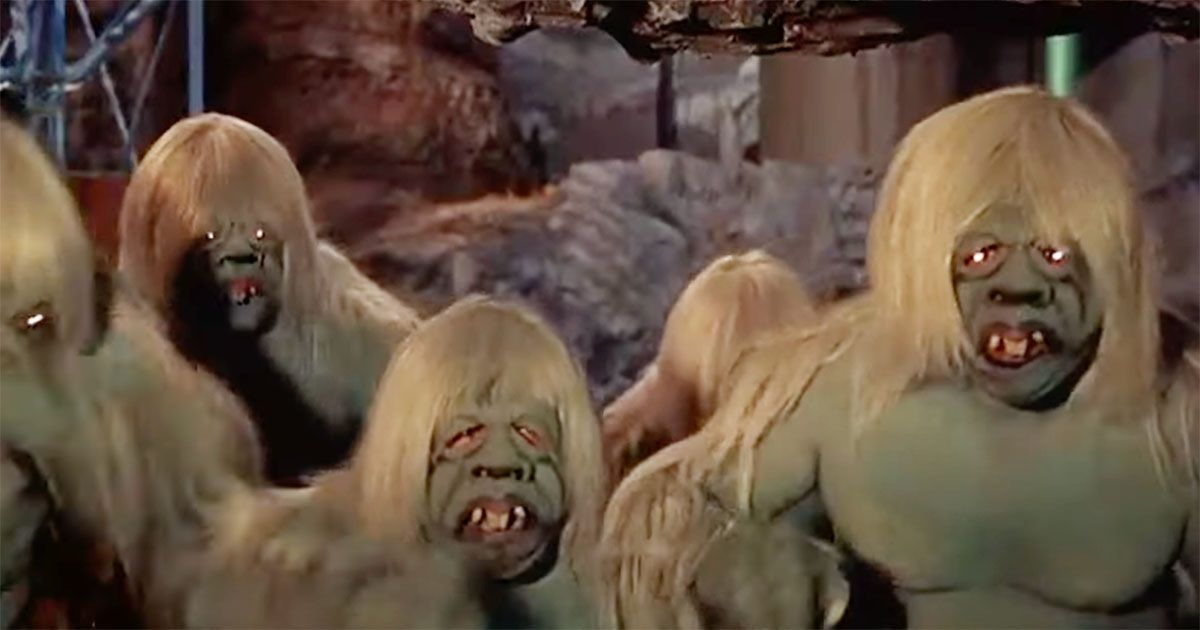
This journey through time not only serves as a visual spectacle but also as a potent meditation on the cyclical nature of history and the critical decisions that define humanity's trajectory. The film suggests that although time moves in a straight line, its lessons and consequences echo through it, urging the viewer to consider their own ethical responsibilities in the present.
Themes
"The Time Machine" leaves an indelible impression on its audience, not only through its visuals and sound but also through its profound exploration of themes that reverberate deeply with the human condition. The film transports viewers into the future, immersing them in a mix of wonder and unease, which it skillfully conveys through its artistic elements.
From the moment the time machine whirs to life, accompanied by a mechanical symphony of sounds that echo the excitement of discovery, the viewer becomes immersed in a world where both possibilities and consequences unfold in equal measure.
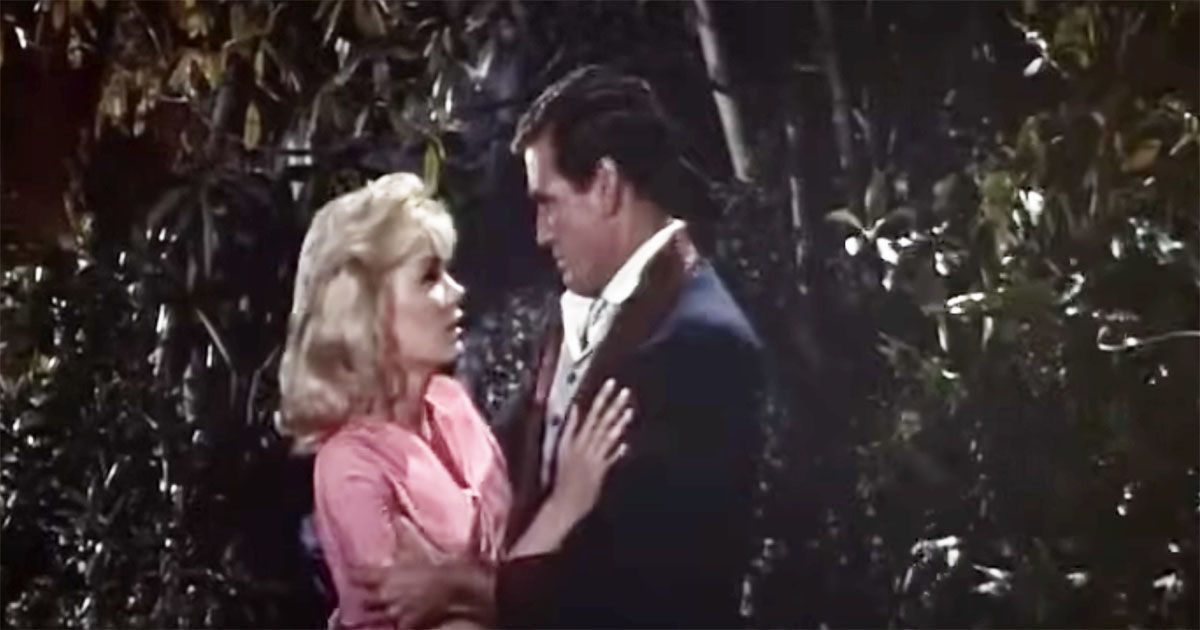
Visually, the film stands out for its imaginative representation of the future, juxtaposing the bright and vibrant world of the Eloi with the dark and foreboding realm of the Morlocks. The lush landscapes of the Eloi's world, filled with greenery and gentle vistas, project an illusory peace that masks underlying trepidation.
In contrast, the shadows of the Morlocks' underground lairs evoke a grim reality where survival depends on predation and fear. The film urges viewers to reflect on the consequences of unchecked technological progress, showing how human advancement can lead to a decline in moral values.
The film's score, composed by George Pal, heightens the emotional resonance of these themes. It oscillates between light, airy melodies that accompany George's idealistic visions of the future and ominous, dissonant chords that underscore the menacing presence of the Morlocks.
The auditory experience of "The Time Machine" enhances the tension between utopia and dystopia, embodying the struggle faced by George and the inhabitants of this future world. Each note underscores the nuancing of hope and despair, luring the viewer into reflection on the moral imperatives that guide human action.
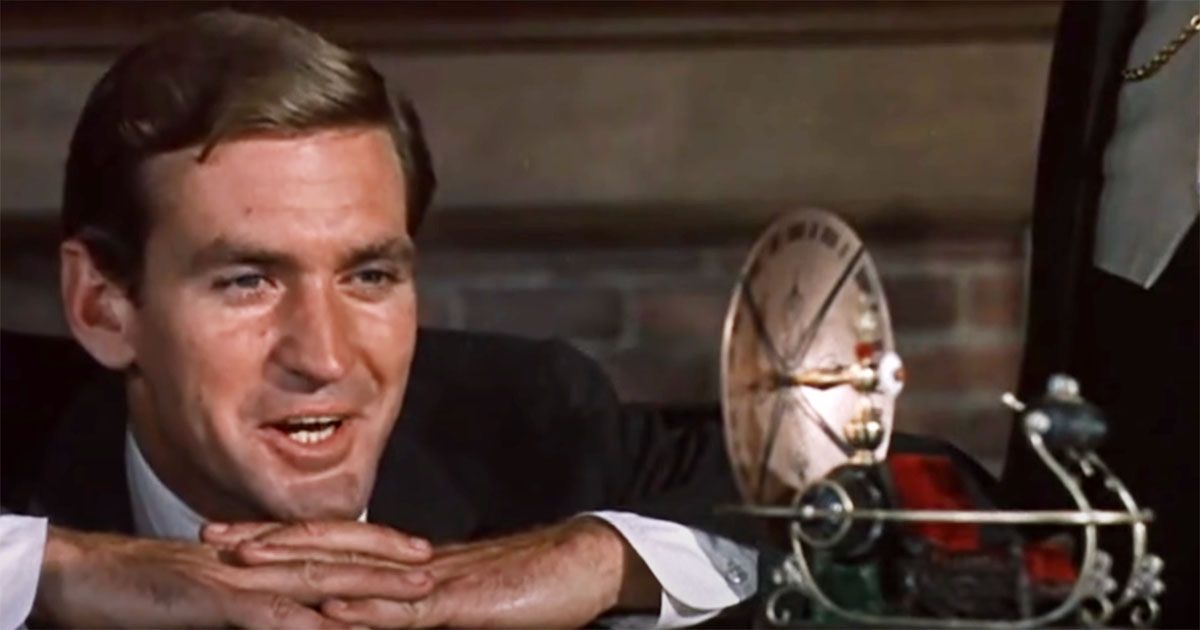
The film centers on George's journey, which delivers a powerful cautionary tale. It suggests that humanity, despite its intellectual achievements, may still fall victim to its own shortsightedness.
The Eloi's complacency contrasts sharply with the Morlocks' malevolence, compelling viewers to confront unsettling questions about societal progress. This contrast reflects modern concerns about what happens when society values comfort over awareness or technology over morality. Through George's perspective, viewers see a future shaped by the consequences of abandoning critical thinking and ethical responsibility.
Additionally, the film contains ruminations on solitude and the quest for connection. George's journey is as much about understanding his place in time as it is about longing for companionship. His relationship with Weena symbolizes hope amid encroaching darkness and a yearning to salvage the remnants of civilization from its own abyss. This theme resounds as he navigates the complexities of love in the face of inevitable loss.
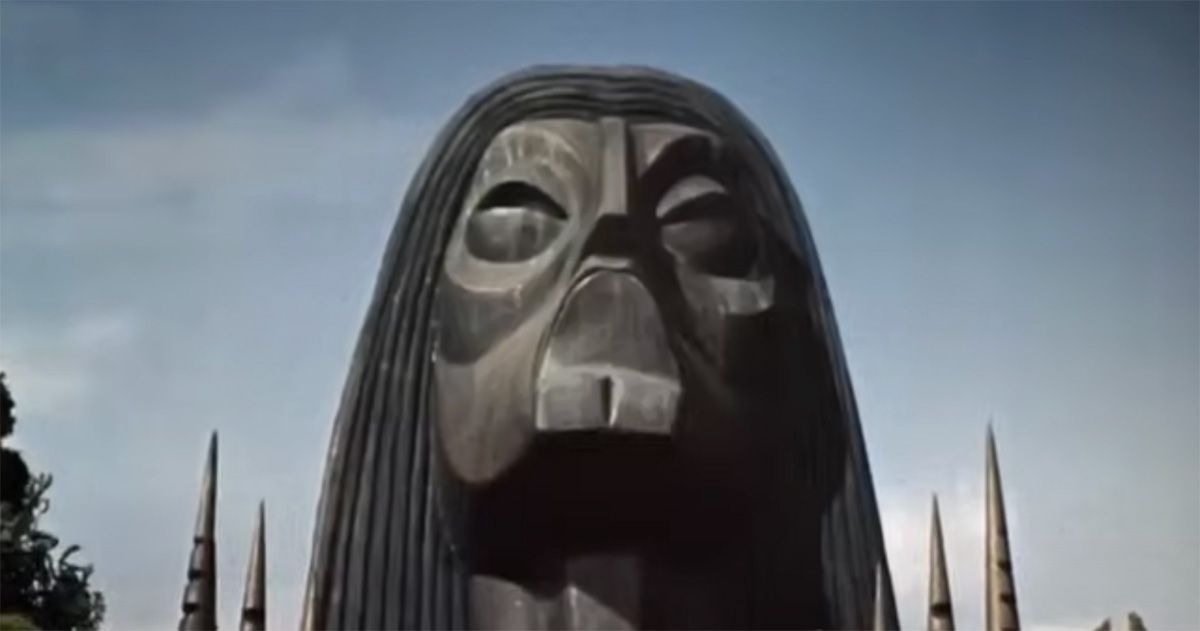
Ultimately, "The Time Machine" is not merely a tale of time travel. It encapsulates a poignant exploration of human nature, progress, and the ethical frameworks within which society operates.
The film leaves a lasting impact with its awe-inspiring visuals, gripping sound design, and complex themes. As viewers reflect on its vivid imagery and thoughtful narrative, they gain an unsettling awareness of their own responsibilities. It serves as a powerful reminder that the course of history depends on the actions taken in the present.
Who Will Enjoy The Time Machine
"The Time Machine" appeals to an array of viewers, extending beyond traditional science fiction enthusiasts. Those with a profound interest in philosophical discussions surrounding the human experience will find the film particularly resonant.
Individuals who enjoy pondering questions about society's trajectory in relation to technological advancement will appreciate the film's rich thematic layers. It is a piece that provokes discussion about the duality of civilization's progress—an ideal choice for a group viewing or a film club gathering, where debates about morality and the implications of societal choices might unfold.
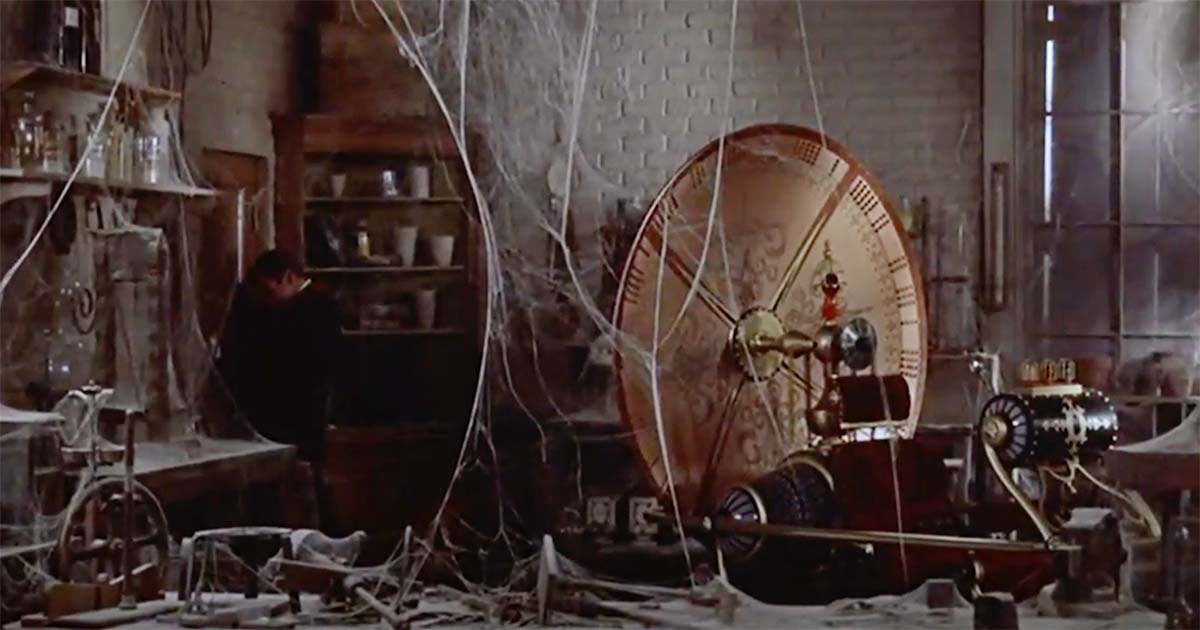
The film also attracts admirers of classic cinema, as its production design and special effects showcase the innovative spirit of the era. A favorable viewing setting could be during a nostalgic movie night, where eager participants seek to appreciate the evolution of visual storytelling.
For those who enjoy a blend of adventure and introspection, watching at dusk, when transitions from light to dark resonate within the narrative, could provide added mood and depth to the experience.
Furthermore, educators or students engaged in discussions about literature adaptations or the historical context of science fiction films will find "The Time Machine" a valuable resource.
It serves as an accessible entry point for examining H.G. Wells' original themes and their relevance across generations, inviting viewers to consider not just the narrative but also the socio-political commentary inherent in the story.
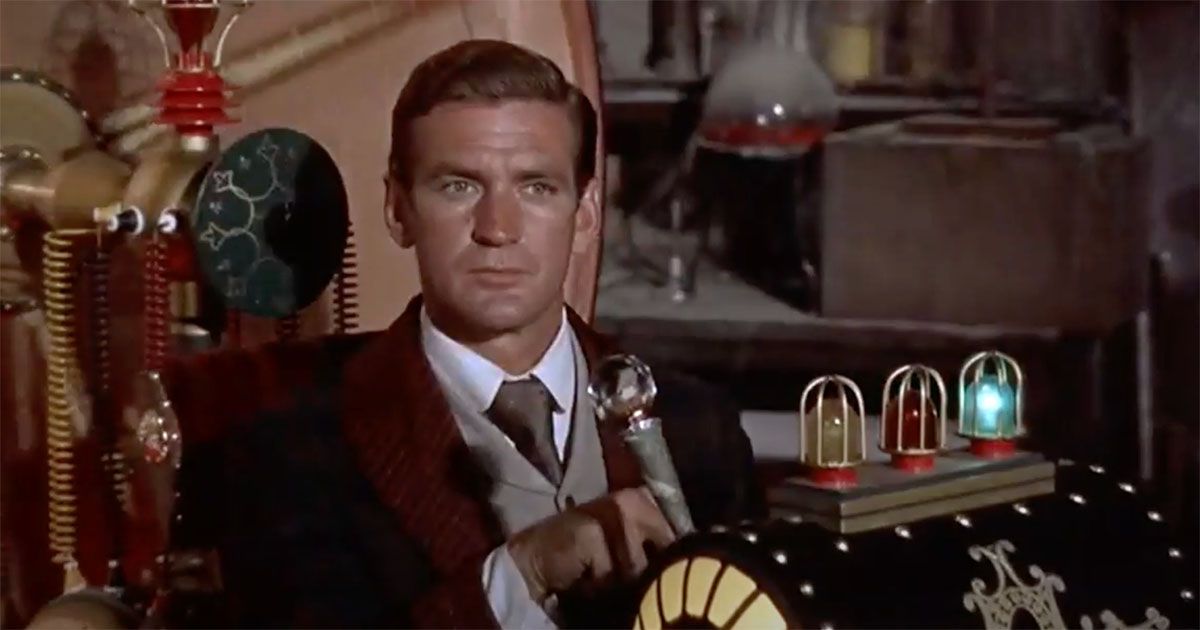
"The Time Machine" navigates a spectrum of motifs that delve into not just the mechanics of time travel but also the ethical dilemmas that shape humanity's path. While its pacing may falter at moments, the film ultimately casts a compelling argument for reflection on personal and societal responsibility. With its dynamic visuals, stirring score, and thought-provoking narrative, it stands as an engaging exploration of futuristic themes that maintain relevance today.
It invites viewers to reflect on the implications of their choices and the definition of progress itself. For anyone eager to engage with a film that is both entertaining and intellectually stimulating, "The Time Machine" is undoubtedly worth watching. Whether for its nostalgic value, its philosophical depth, or its visual artistry, this film remains a poignant and enriching experience that encourages thoughtful contemplation of the human saga across the ages.

